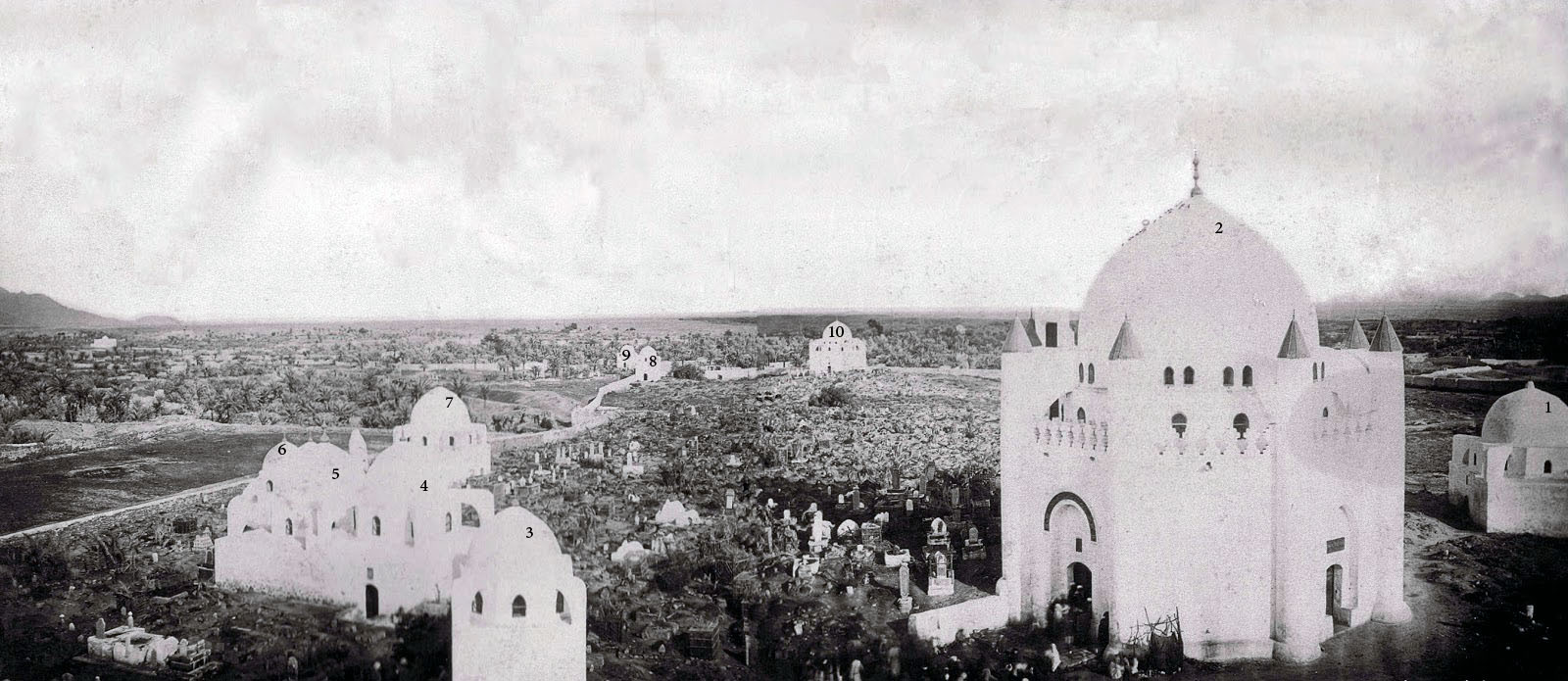Burial place of Fatimah on:
[Wikipedia]
[Google]
[Amazon]
Burial of Fatima is about the secret burial and the uncertainty in the resting place of Fatima, daughter of the Islamic prophet
 Following her will, Ali buried Fatima secretly at night and hid her burial plot. As reported by al-Tabari (), her dying wish was that Abu Bakr should not attend the funeral, and this request was fulfilled by Ali. Fatima's wish is believed to be at odds with the common practice of
Following her will, Ali buried Fatima secretly at night and hid her burial plot. As reported by al-Tabari (), her dying wish was that Abu Bakr should not attend the funeral, and this request was fulfilled by Ali. Fatima's wish is believed to be at odds with the common practice of  Al-Mufid (), another notable Twelver scholar, includes in his ''Ikhtisas'' a related tradition ascribed to
Al-Mufid (), another notable Twelver scholar, includes in his ''Ikhtisas'' a related tradition ascribed to
Muhammad
Muhammad ( ar, مُحَمَّد; 570 – 8 June 632 CE) was an Arab religious, social, and political leader and the founder of Islam. According to Islamic doctrine, he was a prophet divinely inspired to preach and confirm the mo ...
, and wife of Ali
ʿAlī ibn Abī Ṭālib ( ar, عَلِيّ بْن أَبِي طَالِب; 600 – 661 CE) was the last of four Rightly Guided Caliphs to rule Islam (r. 656 – 661) immediately after the death of Muhammad, and he was the first Shia Imam ...
, the fourth caliph
A caliphate or khilāfah ( ar, خِلَافَة, ) is an institution or public office under the leadership of an Islamic steward with the title of caliph (; ar, خَلِيفَة , ), a person considered a political-religious successor to th ...
after Muhammad and the first Shia Imam
In Shia Islam, the Imamah ( ar, إمامة) is a doctrine which asserts that certain individuals from the lineage of the Islamic prophet Muhammad are to be accepted as leaders and guides of the ummah after the death of Muhammad. Imamah further ...
. Fatima died in 11 AH (632 CE), within six months of Muhammad's death, perhaps from her injuries during a raid on her house ordered by the first caliph, Abu Bakr
Abu Bakr Abdallah ibn Uthman Abi Quhafa (; – 23 August 634) was the senior companion and was, through his daughter Aisha, a father-in-law of the Islamic prophet Muhammad, as well as the first caliph of Islam. He is known with the honor ...
. Following her will, she was buried secretly at night. Her exact burial place in Medina
Medina,, ', "the radiant city"; or , ', (), "the city" officially Al Madinah Al Munawwarah (, , Turkish: Medine-i Münevvere) and also commonly simplified as Madīnah or Madinah (, ), is the second-holiest city in Islam, and the capital of the ...
remains uncertain, though two possible locations are the al-Baqi' cemetery and her home. In Shia
Shīʿa Islam or Shīʿīsm is the second-largest branch of Islam. It holds that the Islamic prophet Muhammad designated ʿAlī ibn Abī Ṭālib as his successor (''khalīfa'') and the Imam (spiritual and political leader) after him, mo ...
sources, Fatima's wish for a secret burial is viewed as a sign of the disassociation of Muhammad's daughter with the Muslim community who largely failed to support her against Abu Bakr.
Background
After Muhammad died in 11/632, Fatima and her husbandAli
ʿAlī ibn Abī Ṭālib ( ar, عَلِيّ بْن أَبِي طَالِب; 600 – 661 CE) was the last of four Rightly Guided Caliphs to rule Islam (r. 656 – 661) immediately after the death of Muhammad, and he was the first Shia Imam ...
refused to acknowledge the authority of the first caliph, Abu Bakr
Abu Bakr Abdallah ibn Uthman Abi Quhafa (; – 23 August 634) was the senior companion and was, through his daughter Aisha, a father-in-law of the Islamic prophet Muhammad, as well as the first caliph of Islam. He is known with the honor ...
. The couple and their supporters held that Ali was the rightful successor of Muhammad, referring to his announcement at Ghadir Khumm
The Ghadīr Khumm ( ar, غَدِير خُم) refers to a gathering of Muslims to attend a sermon delivered by the Islamic prophet Muhammad on 16 March 632 CE (18 Dhu al-Hijjah 10 AH). The gathering is said to have taken place at the Ghadir K ...
. Fatima died in Medina in the same year, within six months of Muhammad's death. She was 18 or 27 years old at that time according to Shia and Sunni sources, respectively. Shia Islam holds that Fatima's injuries during an attack on her house directly caused her miscarriage and death shortly after. This attack, intended to subdue Ali, is said to have been instigated by Abu Bakr and led by his aide Umar
ʿUmar ibn al-Khaṭṭāb ( ar, عمر بن الخطاب, also spelled Omar, ) was the second Rashidun caliph, ruling from August 634 until his assassination in 644. He succeeded Abu Bakr () as the second caliph of the Rashidun Caliphate ...
.
The above claims are categorically rejected by Sunnis. On the one hand, Shia historians list some early Sunni sources that corroborate these allegations, arguing that sensitive information has also been censored by Sunni scholars who were concerned with the righteous presentation of Muhammad's companions. On the other hand, it is unimaginable for Sunnis that Muhammad's companions would engage in violence against his family. In turn, Sunni Islam holds that Fatima died from grief after the death of Muhammad and that her child died in infancy of natural causes.
Secret burial
 Following her will, Ali buried Fatima secretly at night and hid her burial plot. As reported by al-Tabari (), her dying wish was that Abu Bakr should not attend the funeral, and this request was fulfilled by Ali. Fatima's wish is believed to be at odds with the common practice of
Following her will, Ali buried Fatima secretly at night and hid her burial plot. As reported by al-Tabari (), her dying wish was that Abu Bakr should not attend the funeral, and this request was fulfilled by Ali. Fatima's wish is believed to be at odds with the common practice of Muslims
Muslims ( ar, المسلمون, , ) are people who adhere to Islam, a monotheistic religion belonging to the Abrahamic tradition. They consider the Quran, the foundational religious text of Islam, to be the verbatim word of the God of Abrah ...
, who are encouraged to join funerals. In Shia sources, her wish for a secret burial is viewed as a sign of the disassociation of Muhammad's daughter with the Muslim community who largely failed to support her against Abu Bakr. Among contemporary authors, Madelung and Osman suggest that the secret burial was a clear message that Fatima died in a state of resentment against Abu Bakr. In preparation for her death, Klemm writes that Fatima had requested a closed bier.
The prominent Twelver
Twelver Shīʿīsm ( ar, ٱثْنَا عَشَرِيَّة; '), also known as Imāmīyyah ( ar, إِمَامِيَّة), is the largest branch of Shīʿa Islam, comprising about 85 percent of all Shīʿa Muslims. The term ''Twelver'' refers t ...
traditionist al-Tusi Al-Tusi or Tusi is the title of several Iranian scholars who were born in the town of Tous in Khorasan. Some of the scholars with the al-Tusi title include:
* Abu Nasr as-Sarraj al-Tūsī (d. 988), Sufi sheikh and historian.
*Aḥmad al Ṭūsī ( ...
() reports an account of the burial attributed to their son Husayn
Hussein, Hussain, Hossein, Hossain, Huseyn, Husayn, Husein or Husain (; ar, حُسَيْن ), coming from the triconsonantal root Ḥ-S-i-N ( ar, ح س ی ن, link=no), is an Arabic name which is the diminutive of Hassan, meaning "good", " ...
. This account describes that Ali broke into tears as he completed the unmarked grave of his wife. He then turned to Muhammad's grave and said:
 Al-Mufid (), another notable Twelver scholar, includes in his ''Ikhtisas'' a related tradition ascribed to
Al-Mufid (), another notable Twelver scholar, includes in his ''Ikhtisas'' a related tradition ascribed to Ja'far al-Sadiq
Jaʿfar ibn Muḥammad ibn ʿAlī al-Ṣādiq ( ar, جعفر بن محمد الصادق; 702 – 765 CE), commonly known as Jaʿfar al-Ṣādiq (), was an 8th-century Shia Muslim scholar, jurist, and theologian.. He was the founder of th ...
, the sixth Imam. This tradition describes that the next morning Abu Bakr and Umar berated Ali for the secret burial of Fatima. After learning that this was Fatima's wish, the account continues that Umar threatened to locate and exhume Fatima's body and then re-bury her after funeral prayer. According to this account, what prevented Umar from materializing his threat was Ali's warning, "By God, as long as I'm alive and y sword
Y, or y, is the twenty-fifth and penultimate letter of the Latin alphabet, used in the modern English alphabet, the alphabets of other western European languages and others worldwide. According to some authorities, it is the sixth (or sevent ...
Zulfiqar
Zulfiqar ( ar, ذُو ٱلْفَقَار, Ḏū-l-Faqār, ), also spelled ''Zu al-Faqar'', ''Zulfikar'', ''Dhu al-Faqar'', ''Dhulfaqar'' or ''Dhulfiqar'', is the sword of Ali ibn Abi Talib.
Middle Eastern weapons are commonly inscribed w ...
is in my hands, you will not reach her, and you know best ot to do it" For Khetia, the interpretation is that the loss of Fatima was so traumatizing for Ali that he threatened Umar with violence for the first time, despite his previous restraint.
Uncertain burial place
Fatima's exact burial place in Medina remains uncertain, with often contradictory reports. The two most probable locations for her grave are the al-Baqi' cemetery and her home, which was later annexed to theProphet's Mosque
Al-Masjid an-Nabawi (), known in English as the Prophet's Mosque, is a mosque built by the Islamic prophet Muhammad in the city of Medina in the Al Madinah Province of Saudi Arabia. It was the second mosque built by Muhammad in Medina, after Q ...
. The former location is reportedly supported by her son Hasan's wish to be buried next to his mother. On the other hand, the Sunni al-Samhoodi () concludes that Hasan is buried next to his grandmother Fatima bint Asad
Fatima bint Asad ( ar, فَاطِمَة بِنْت أَسَد ', 555–626 CE), was the mother of Ali ibn Abi Talib, married to Abu Talib, and an aunt to the Islamic prophet Muhammad.
Fatima bint Asad and her husband, Abu Talib, acted as p ...
, rather than his mother Fatima. This uncertainty in Shia sources again underscores Fatima's displeasure with the Muslim community.
See also
References
Sources
* * * * * * * * * * * * * * * *Further reading
* * * * * * * * * {{refend Sunni Islam Burials Disputed tombs Shia Islam Fatimah